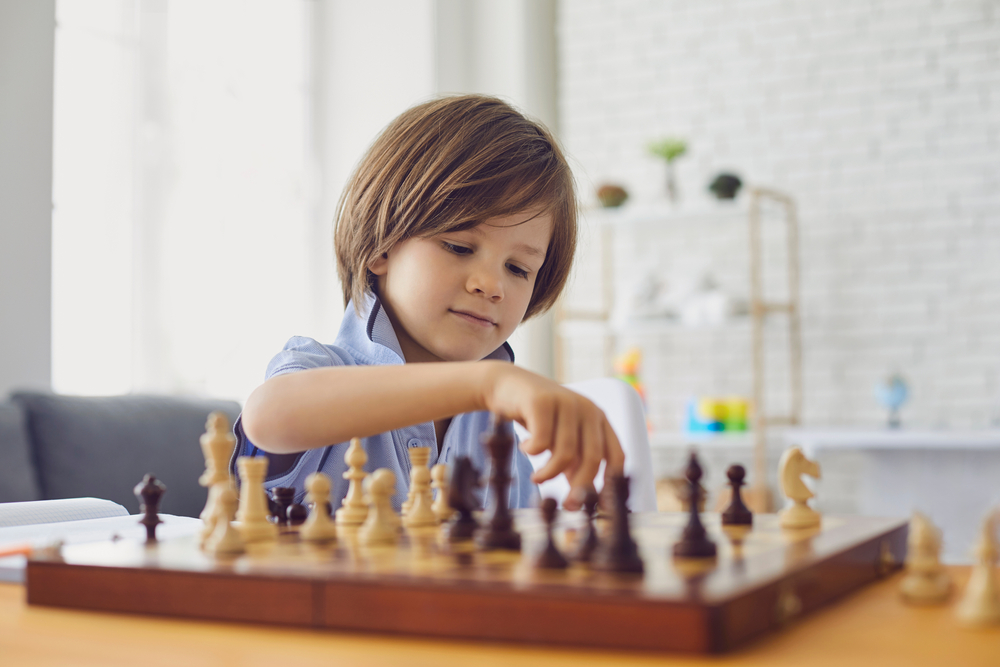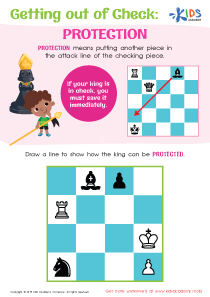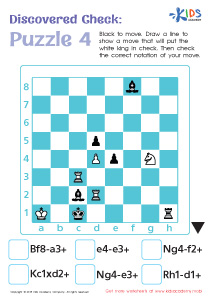Enhancing problem-solving skills Chess Worksheets for Ages 6-7
3 filtered results
-
From - To
Unlock your child's potential with our specialized Chess Worksheets for Ages 6-7, designed to enhance problem-solving skills in young learners. At Kids Academy, our thoughtfully crafted worksheets offer engaging chess exercises that foster critical thinking, strategic planning, and cognitive development. As children navigate through exciting chess challenges, they gain invaluable skills that enhance academic performance and build confidence. Suitable for beginners and young chess enthusiasts alike, our printable worksheets make learning chess enjoyable and effective. Empower your child to think ahead and solve problems creatively with Kids Academy's expert-crafted chess activities. Start their journey to mastery today!
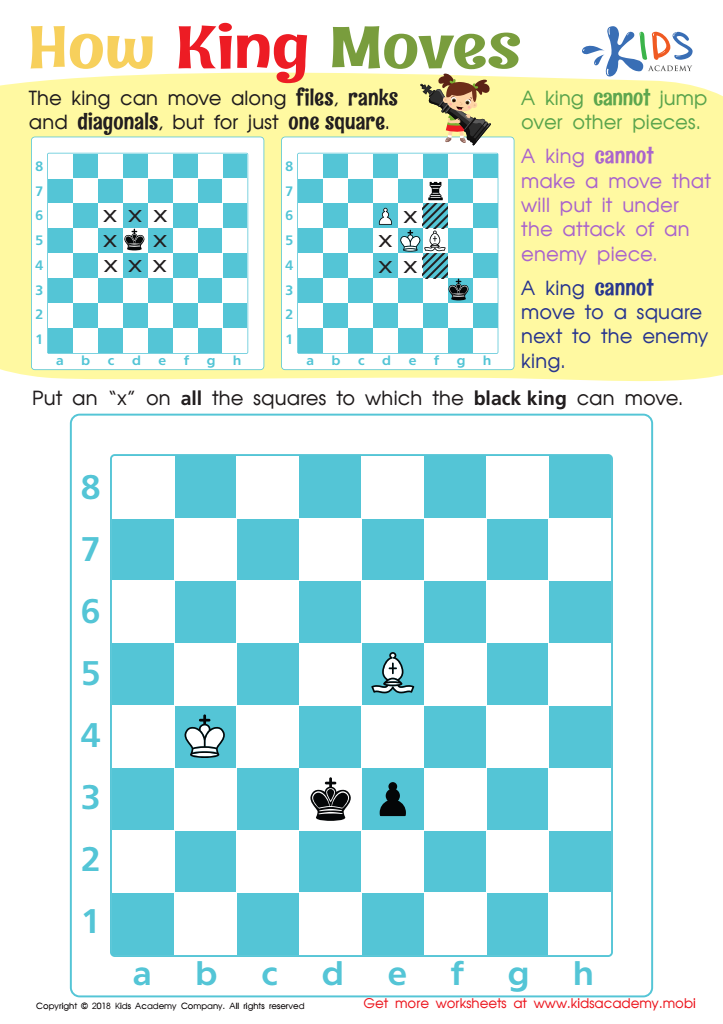

How King Moves Worksheet
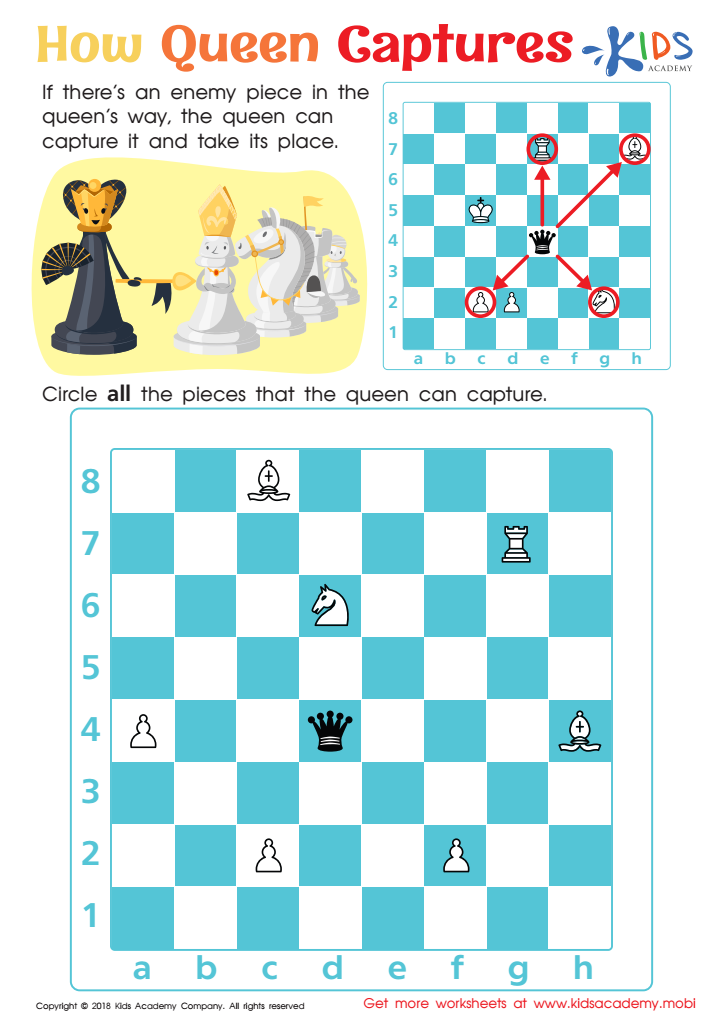

How Queen Captures Worksheet
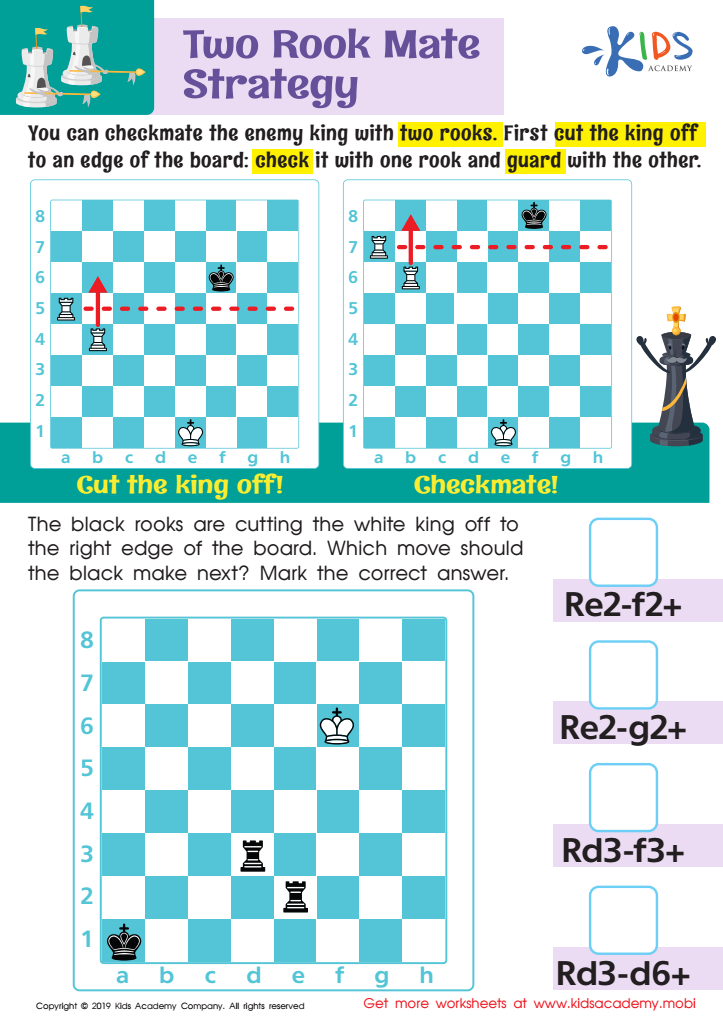

Two Rook Mate Strategy Worksheet
Enhancing problem-solving skills through chess for children aged 6-7 is highly beneficial and should be a priority for both parents and teachers. At this developmental stage, children's brains are rapidly growing, and engaging in activities that stimulate cognitive functions is crucial. Chess serves as an excellent tool to nurture these abilities.
Firstly, chess requires players to think several steps ahead and consider potential responses to their moves. This foresight helps children develop critical thinking and planning skills, as they must anticipate consequences and prepare strategies accordingly. Secondly, playing chess enhances pattern recognition. Recognizing recurring formations and sequences is vital for problem-solving and can translate into mathematical and logical reasoning skills.
Additionally, chess teaches the importance of patience and discipline. Young kids often have short attention spans, but learning to stay focused on the chessboard can lengthen their concentration over time. The game also fosters resilience and coping skills, as children learn to face defeats and setbacks positively, analyzing their mistakes to improve future performance. These emotional skills are critical in both academic and real-world settings.
Lastly, the social aspect of playing chess teaches valuable life skills such as cooperation, respect, and sportsmanship. When children participate in chess activities, they engage with peers meaningfully, building communication and collaborative skills that are indispensable throughout life.
Overall, chess is a multifaceted educational tool that holistically contributes to a child’s cognitive and emotional development, laying a strong foundation for future learning and problem-solving abilities.
 Assign to My Students
Assign to My Students






